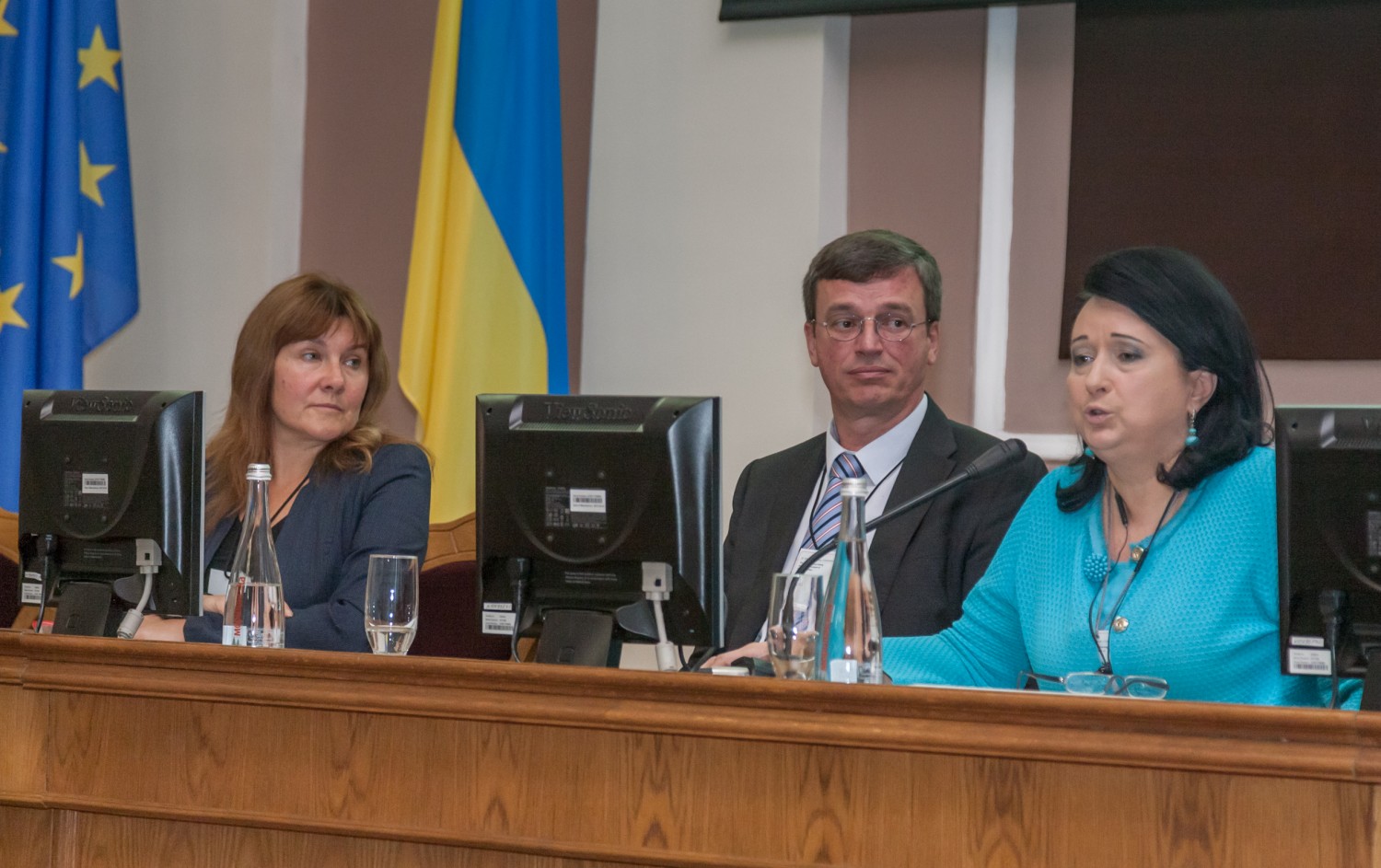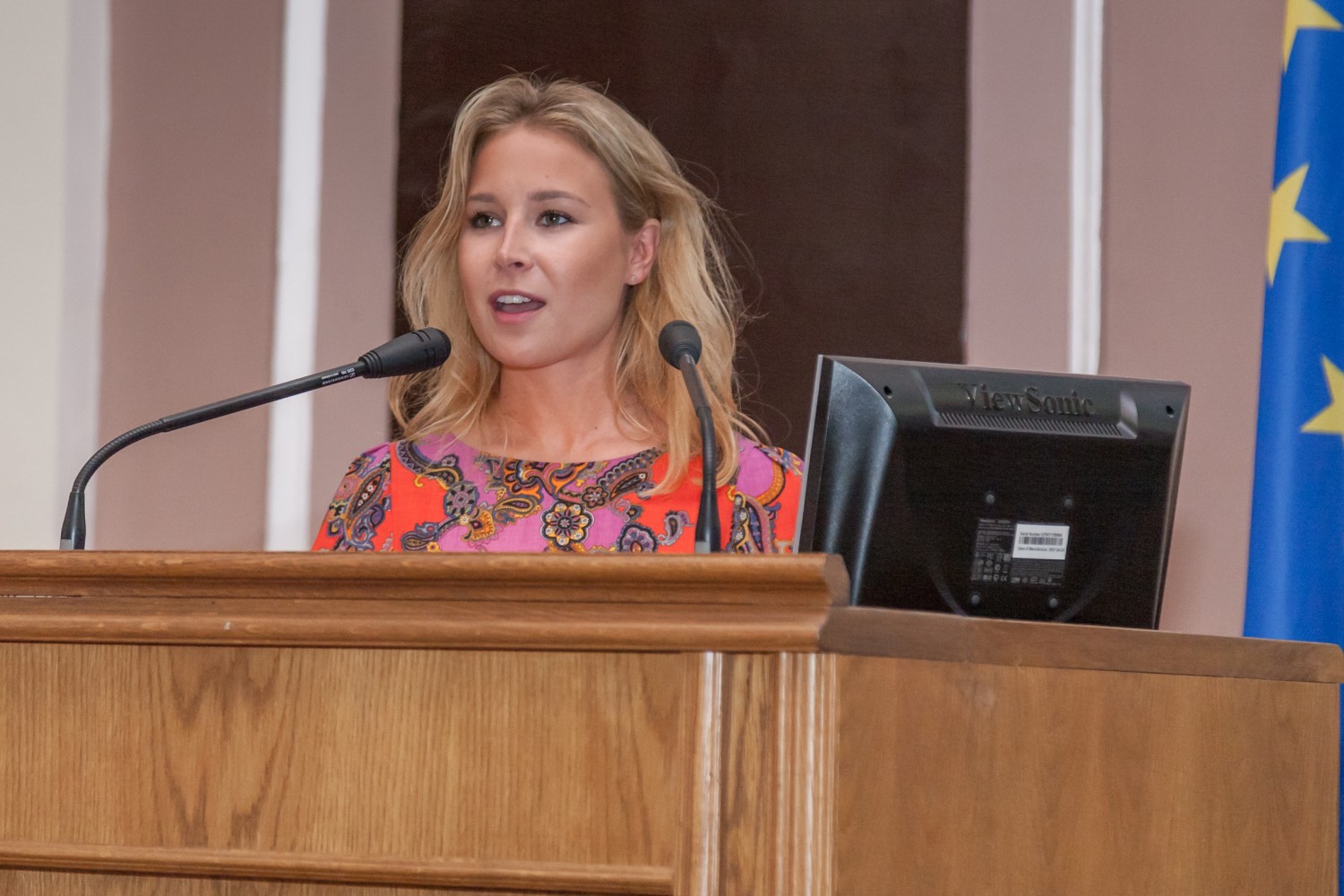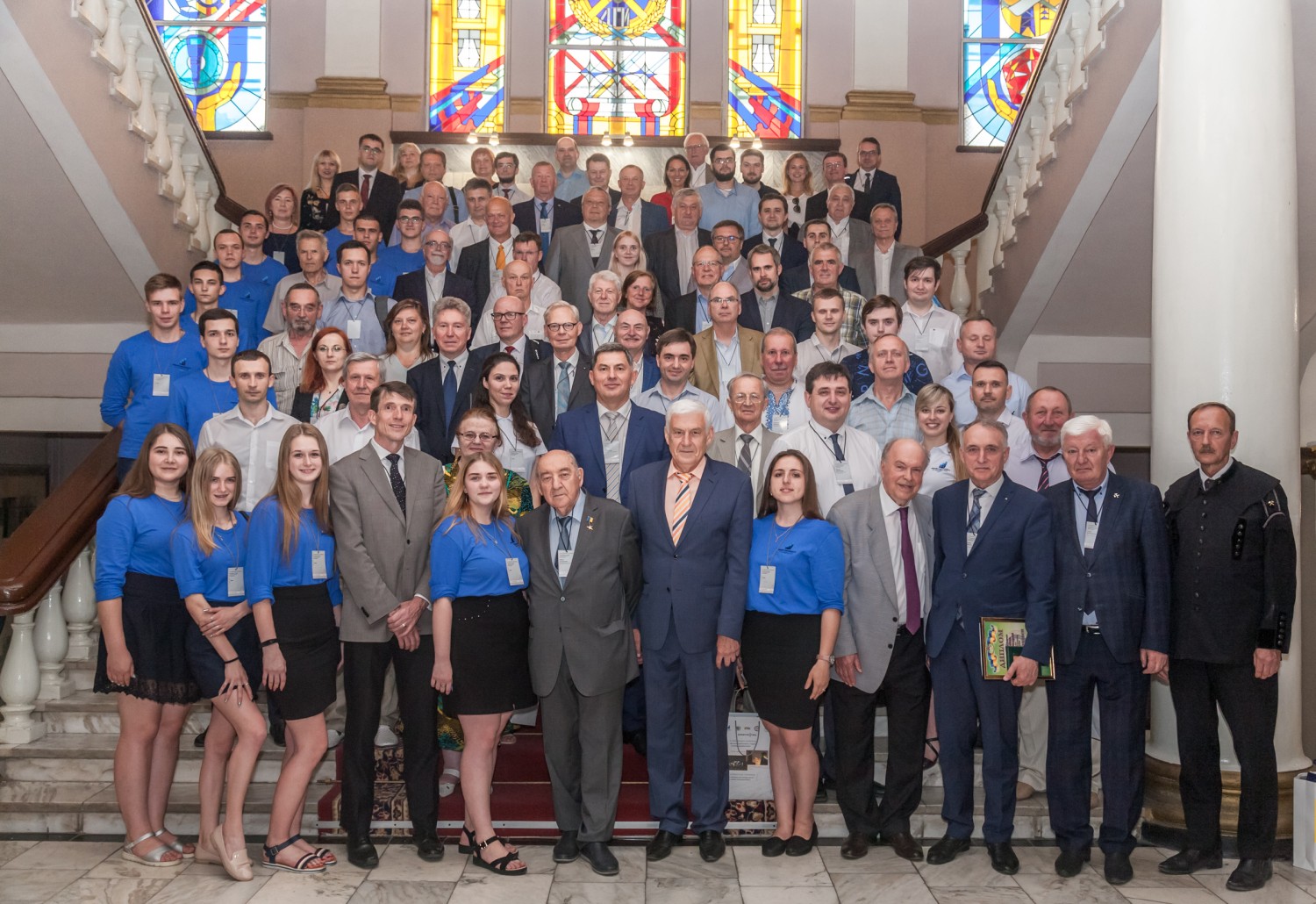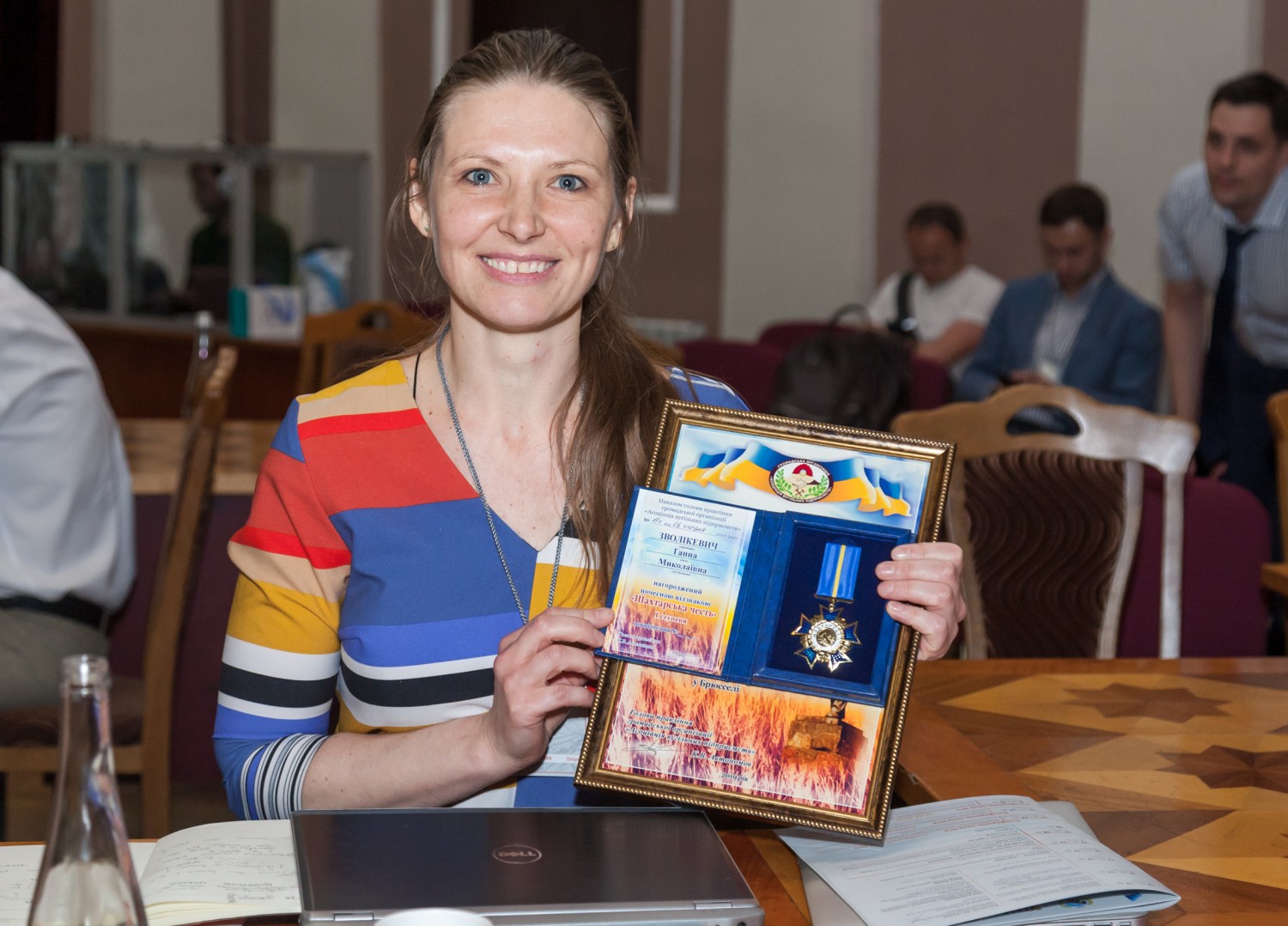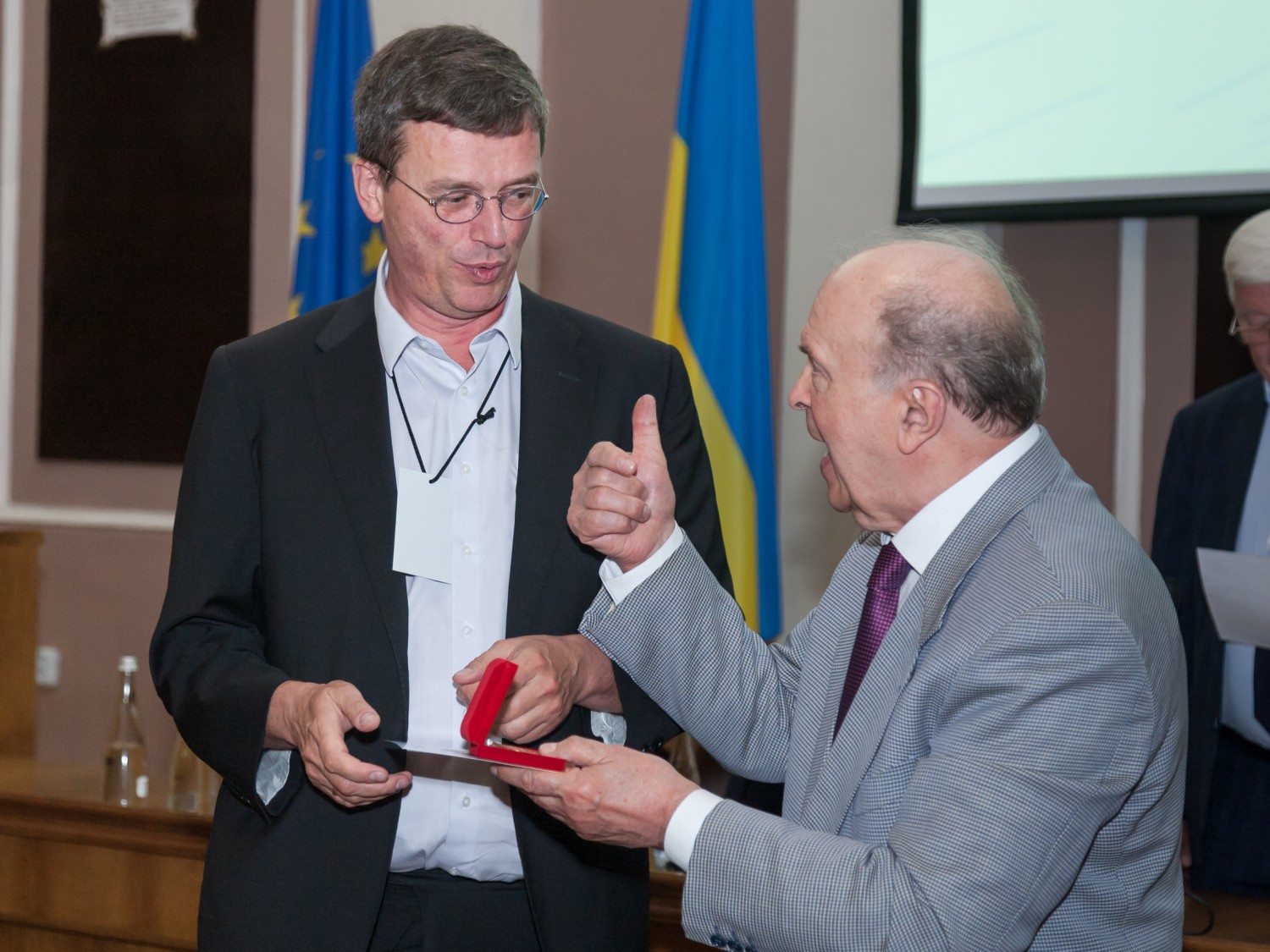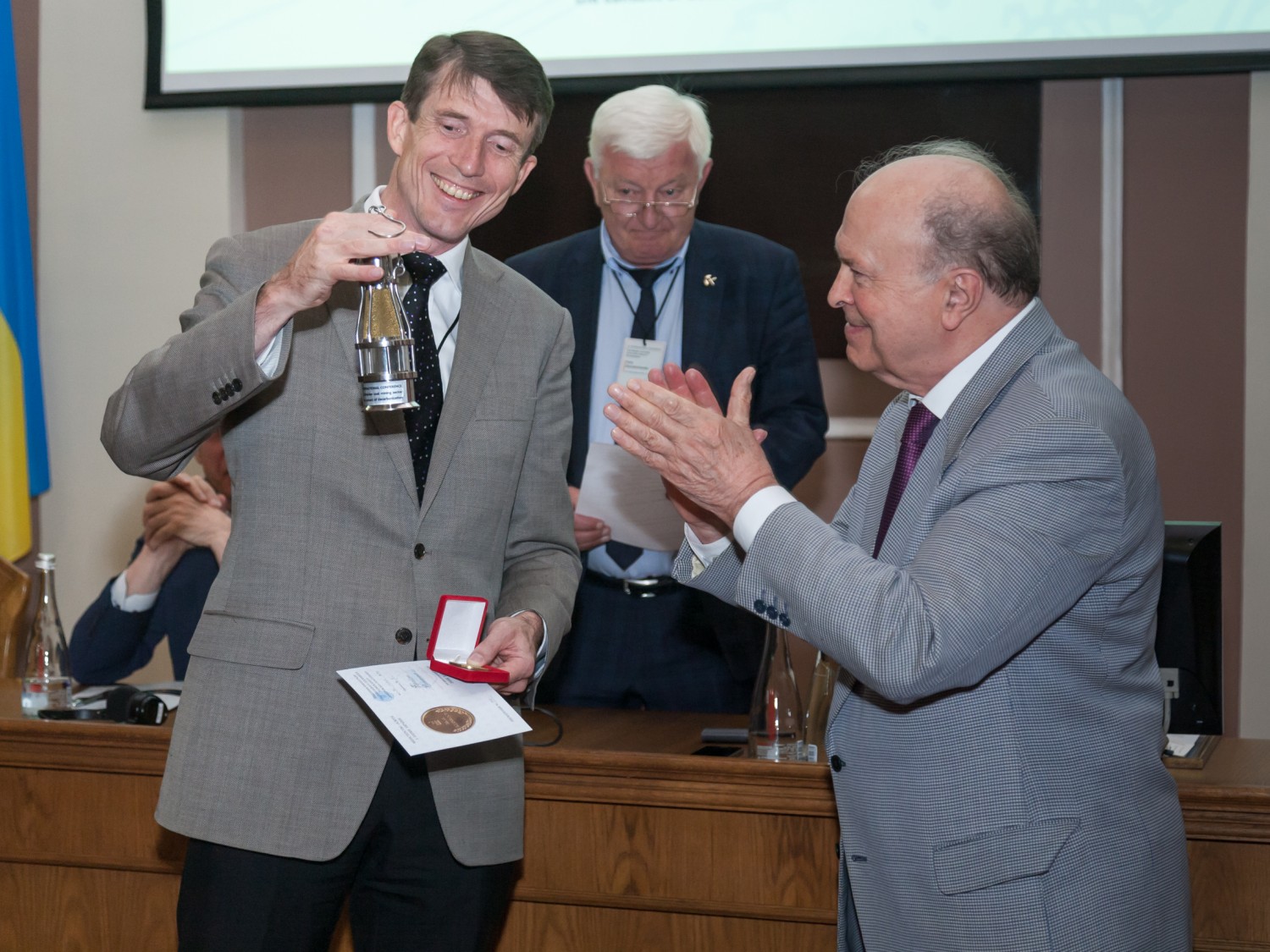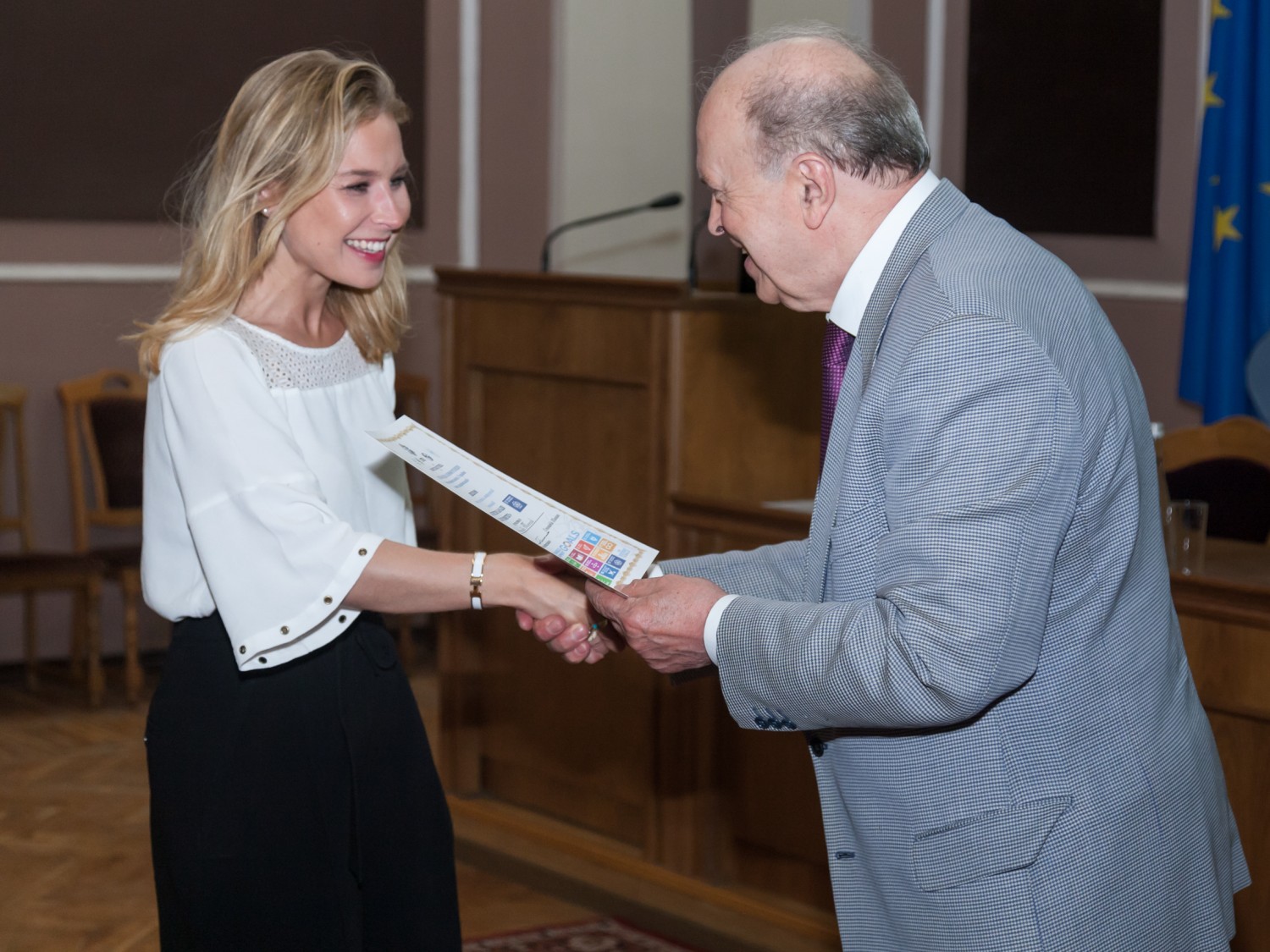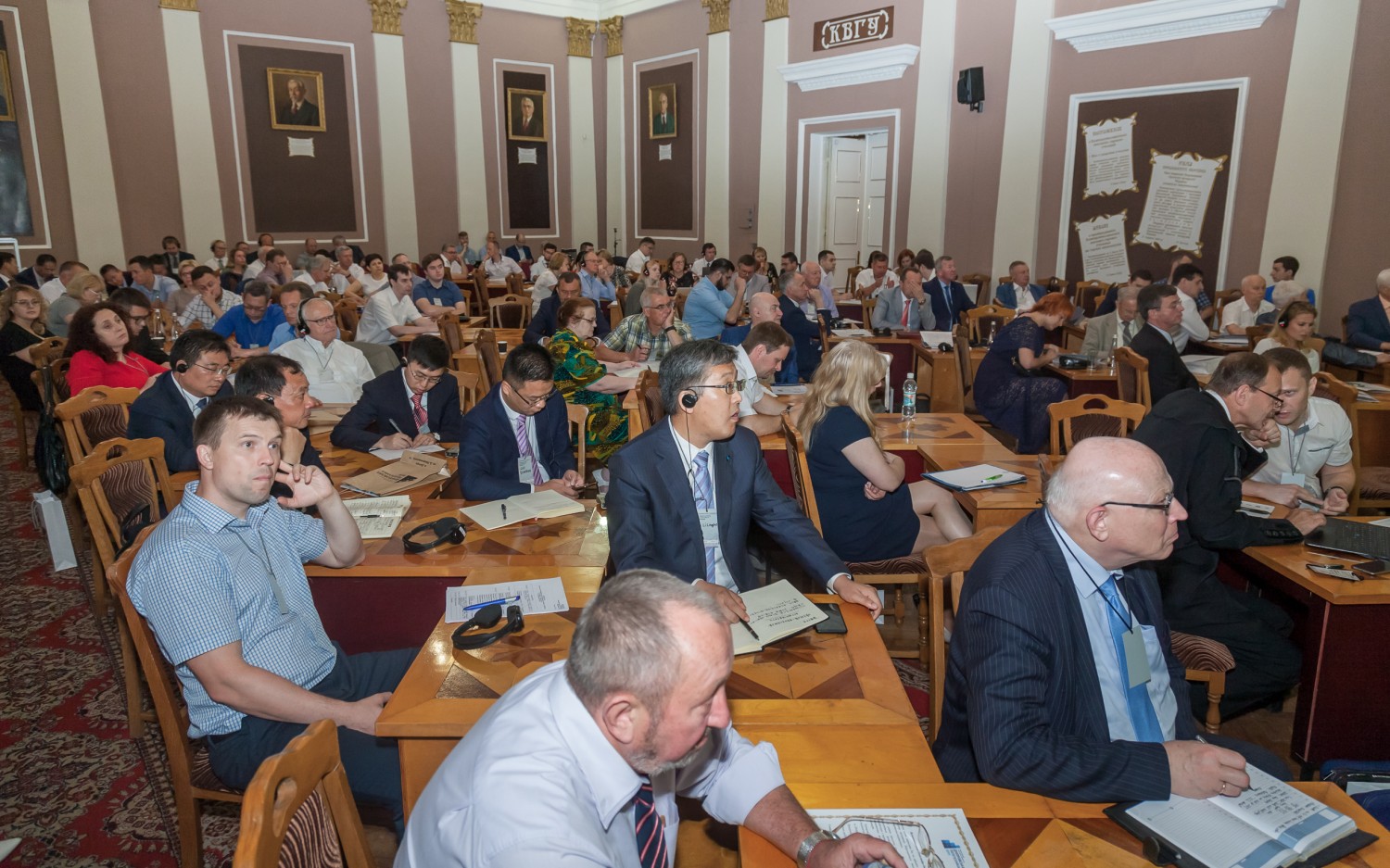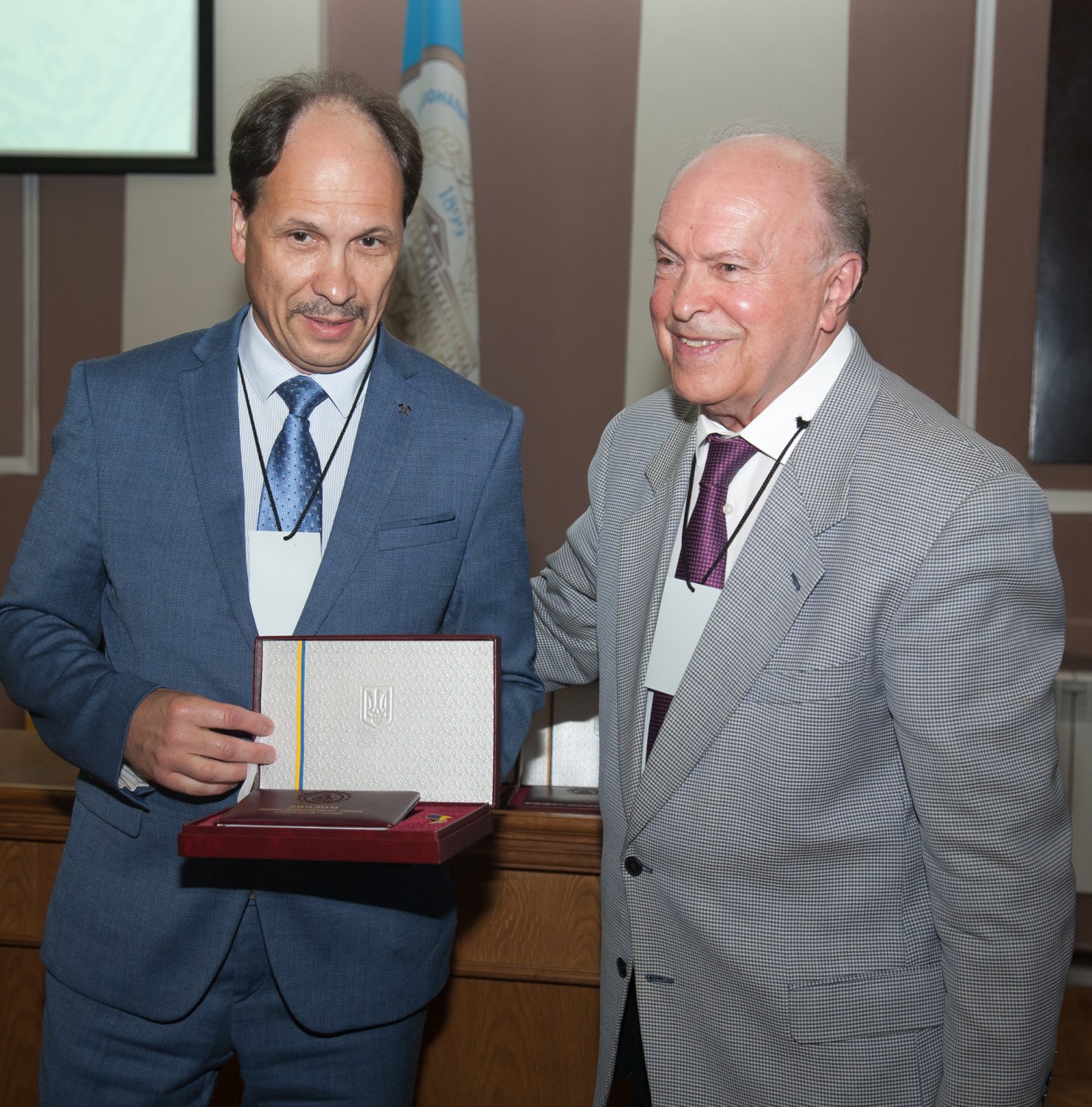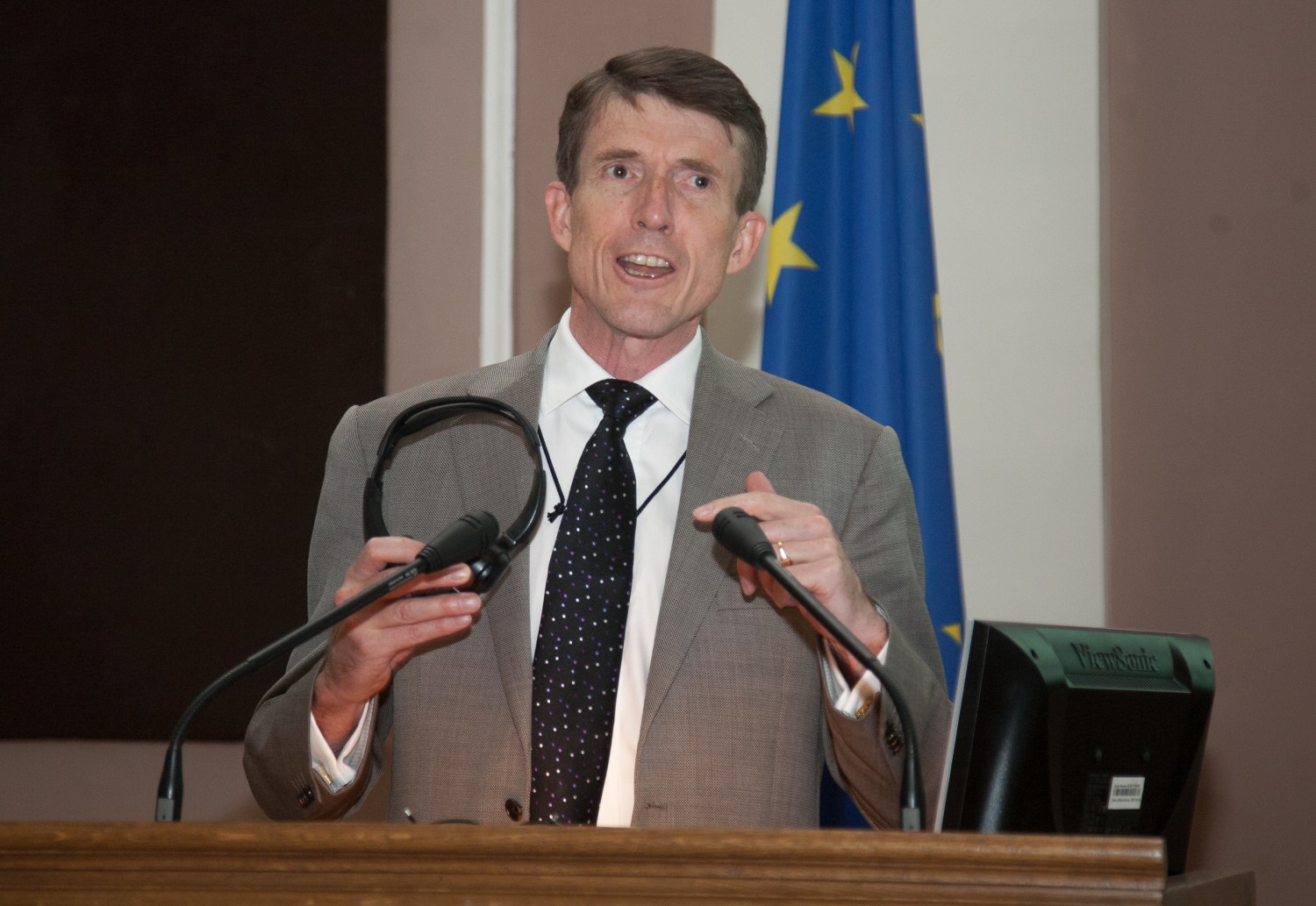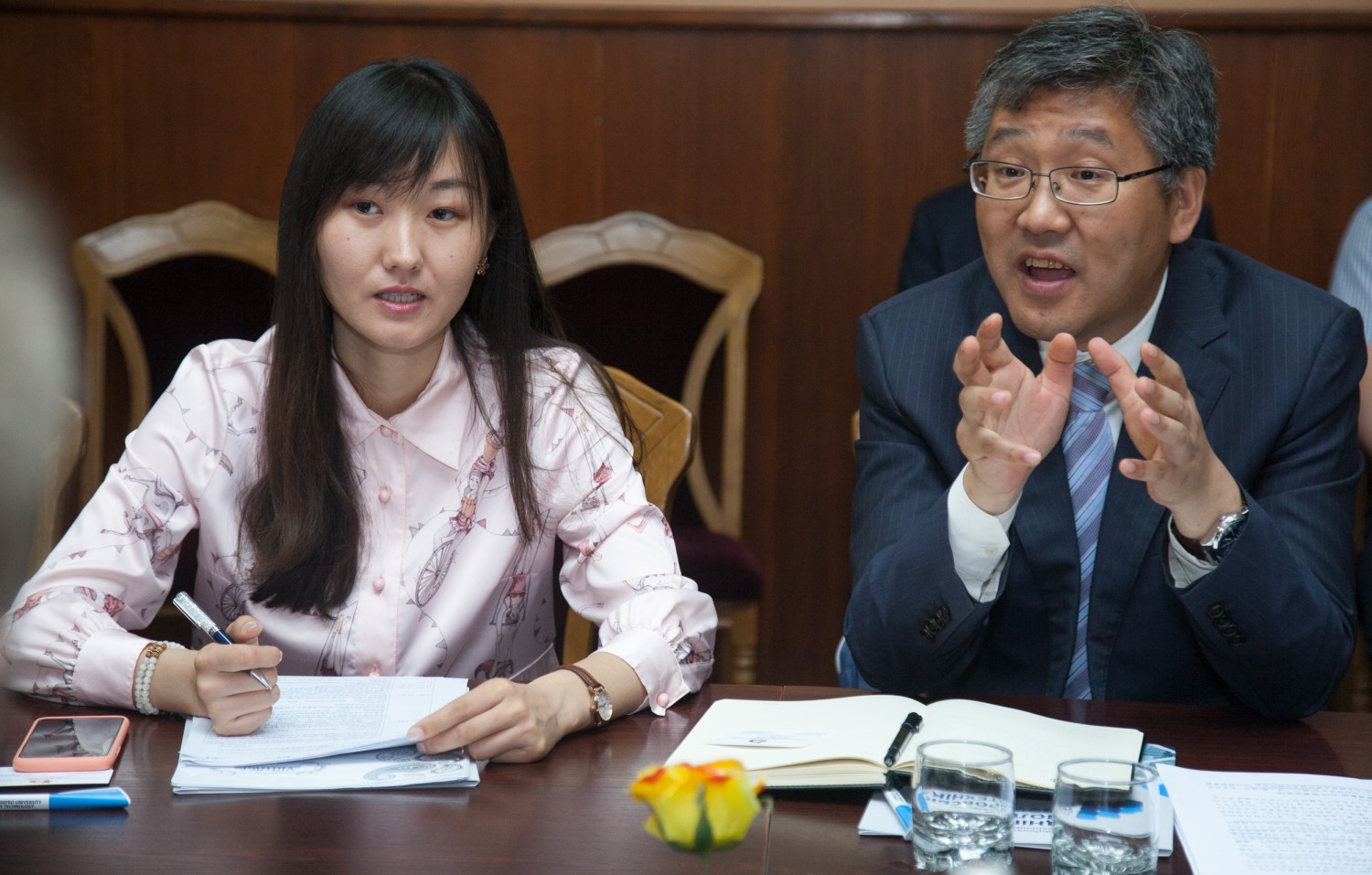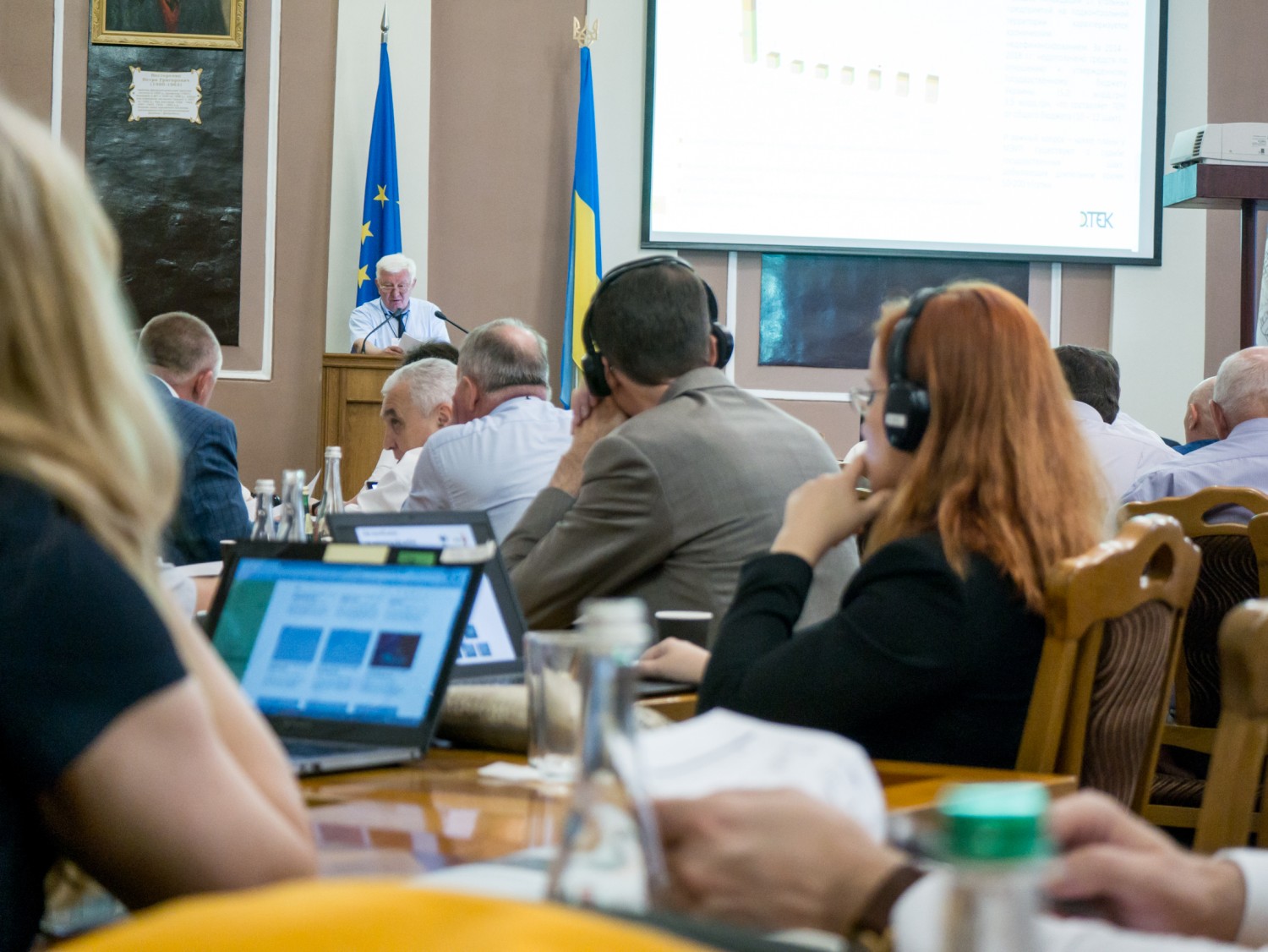"The Ukrainian coal mining sector in the context of decarbonization"
Programme and available materials
The EU programmes of the Research and Innovations in the energy sector (Research Fund for Coal and Steel) - Herve Martin (Radostina Petrova), Head of Unit, DG Research and Innovation, European Commission
Changing the face of coal: an outline strategic research agenda for future coal-related RTD in the European Union – a report of the RFCS – supported CoalTech2051 project - Brian Riсketts, Secretary General, European Association for Coal and Lignite (EURACOAL)
DTEK: comprehensive approach to the decarbonisation - Mykhailo Barabash, Coal Production Director, DTEK Energy
Update on Coal and carbon intensive Regions in Transition Platform - Aleksandra Tomczak, Policy Coordinator, EU Coal, Retail Electricity and Gas Markets; DG Energy, European Commission
Transformation of coal mining regions: Germany’s experience - Carsten Drebenstedt, Professor, Dr. Sci. Eng., Freiberg Mining Academy
The implementation of the environmental policy of the “Donetsksteel” company is an important factor in solving the economic and social problems of the coal mining region - Ildar Saleyev, Chief Executive Officer, Donetsksteel
Legal aspects of coal mines’ reconversion in Ukraine - Gennadiy Pivnyak, Rector, National Technical University “Dnipro Polytechnic”, Academician of the NAS of Ukraine
EU Decarbonizatoin Strategy: impact on the coal mining sector - Lukasz Kolinski, Head of Unit Economic Analysis and Financial Instruments of DG Energy, European Commission
Coal Regions in Transition Platform - Yuriy Cherednychenko, General Director, DTEK Dobropillyavuhillya
MERIDA Project: managing environmental risks during and after the mine closure - Alicja Krzemień, Chair of Euracoal Technical Research Committee
Challenges and opportunities for the fuel and energy complex of Ukraine arising from the implementation of the decarbonization policy - Iryna Verbits’ka, Сhief environmental officer, DTEK
Technologies for contemporary coal mines - Robin Dean, Head of Coal, Wardell Armstrong Internationa
Alternative uses for coal - Volodymyr Bondarenko, Professor, Dr. Sci. Eng., Head, Department of Underground Development, National Technical University “Dnipro Polytechnic”
Carbon Prices: what Ukrainian coal sector needs to know in the context of decarbonization - Аnna Zvolikevych, DTEK’s Representative in Brussels
Decarbonization and the circular economy: elements of the same value chain - Vernigora Vladislav, Manager of Technical Development Department, DTEK Energy
Highly efficient coal assets: a boost for the Ukrainian economy on its path to decarbonization - Victor Levit, Dr. Sci. Eng., Capital Building Director, Donetsksteel
Technology for Synthetic Gas Production in Closed Mines - Roman Dychkovskyi, Professor, Dr. Sci. Eng., National Technical University “Dnipro Polytechnic”
Sharing insights on efficient technologies and resource allocation in coal processing - Serhiy Vasylenko, General Director, Concentrating Factory "Svyato - Varvarinska"
Sharing best practice from water purification projects, both for technical usage and human consumption - Kostiantyn Avtonomov, Chair of Ukrainian Association of Coal Companies
Control over ground water flow during operation and closure of coal mines - Ivan Sadovenko, Dr. Sci. Eng., Professor of Department of Hydrogeology and Engineering Geology National Technical University “Dnipro Polytechnic”
Presentation by representative from the Ministry of Energy and Coal Industry of Ukraine - Maksym Fedotov, Director, Directorate for Fossil Fuels
Presentation by DG Energy on how CRiTP functions - Aleksandra Tomczak, Policy Coordinator, Coal Regions in Transition Platform
Presentation by TRACER project - Ihor Volchyn, Deputy Director in charge of scientific work, Coal Energy Technology Institute, Ukrainian National Academy of Sciencesl
Coal Sector Transition and Renewables - Dmytro Glazkov, Senior Energy Specialist, World Bank
Examples of transformation of the coal regions – the EU - Robert Pollock, Secretariat of the CRiTP
Eхаmple of transformation of the coal regions – Belgium - Kris Backers, Honorable Council of Ukraine (Limburg)
Goals and purpose of the Technological park “Pavlogradsky” - Oleksandr Kolomiytsev, Director of Technological Park “Pavlogradsky”
Modernization of the energy sector in the coal mining regions - Michal Drabik, Economic Affairs Officer United Nations Economic Commission for Europe
Strategies for Just Energy Transition: Canadian experience - Yuliia Oharenko, Аffiliate GSI / IISD
Keynote speech: Challenges for the coal mining towns of the Donetsk region: implementing the principles of the sustainable development - Oleksandr Zavarzin, Mayor of Bilytske, Donetsk region
What makes successful projects in transition regions - Isabel Blanco, Associate Director, Lead Sector Economist, EBRD
Processing of coal mining and coal mining waste as a chance for the survival of the mining regions - Oleksandr Amosha, Academician, Institute of Industrial Economics, National Academy of Sciences of Ukraine
Strategy and Governance and the Transformation of Industrial Legacies and Assets - Robert Pollock, Secretariat of the CRiTP
Communique
following the 3rd International Coal Conference
“The Ukrainian coal mining sector in the context of decarbonization”
13 – 14 June 2019, Dnipro
Ukraine’s bid to reform and restructure its energy sector - and particularly its coal industry - relies on the close cooperation of the European Union. The EU-Ukraine Association Agreement contains comprehensive provisions for the exchange of information and experience and provides support to regulatory reforms, including for the coal sector (Article 339, Title V).
The EU-Ukraine Memorandum of Understanding on a Strategic Energy Partnership covers all issues arising from the decarbonization of Ukraine’s economy, with a particular focus on the recovery and use of methane from coal mines, financing climate change adaptation and programs around greenhouse gas reduction. The Memorandum also encourages a collaborative approach to research, promoting Ukraine’s participation in Horizon 2020 and the Research Fund for Coal and Steel (RFCS).
At the 20th EU-Ukraine Summit, which took place in July 2018, EU representatives noted the positive steps Ukraine has taken to implement its Energy Strategy until 2035 - in particular, strengthening energy security and implementing its commitments under the Paris Agreement on climate change. As a follow up, EU-Ukraine Association Council agreed to update an Annex XXVII to the Association Agreement in December 2018, reflecting changes to the EU energy acquis communautaire. This document primarily reflects Ukraine’s obligations to implement the 3rd Energy Package of the EU, but it also defines further alignment between Ukrainian and EU energy legislation. The Verkhovna Rada of Ukraine has adopted the proposed changes on Annex XXVII to the Association Agreement on 6th June 2019, further strengthening the legal grounds for integrating the Ukrainian energy system into the EU market.
On 24th December 2018, the Regulation (EU) of the European Parliament and of the Council on the Governance of the Energy Union and Climate Action entered into force. The Governance Regulation, as a part of the Clean Energy Package, is an integral part of the EU energy acquis communautaire. The Regulation requires EU Member States to develop and implement national energy and climate plans, aimed at achieving targets on CO2 reduction and meeting the EU’s obligations under the Paris Agreement. In time, Ukraine will also have to develop a national energy and climate plan as part of its commitment under the Energy Community and the EU-Ukraine Association Agreement. Such plan will have a direct impact on the coal industry and energy generation.
In November 2018, the European Commission put forward a strategic vision on achieving carbon neutrality by 2050 – “Clean Planet for all”. This document covers the entire economy, but also contains a reference to the EU initiative on the Coal (and carbon intensive) Regions in Transition Platform (CRiTP). CRiTP is an important instrument for resolving outstanding issues relating to workers and local communities affected by the energy transition. The strategic vision also focuses on technologies, innovations, and research and development which can help achieve the goal of carbon-neutrality.
Ukraine is also a party to the Paris agreement and has obligations on reporting and delivering on its nationally determined contribution (NDC). The submitted version of Ukraine’s NDC - which is currently being updated - defines that greenhouse gas emissions should not exceed 60% of 1990 levels. Under the Association Agreement with the EU, Ukraine has committed to introducing an emission trading scheme, which determines trading and allocation of quotas for greenhouse gas emissions at the national market.
According to expert estimates, the legislative documents needed to introduce the emission trading scheme could be adopted before 2024, with the system itself coming into force in Ukraine before 2025. Furthermore, in 2018 Ukraine adopted a strategy for low carbon development until 2050, which aims to decrease greenhouse gas emissions by decreasing electricity production from traditional, carbon-intensive sources.
Discussions at 3rd International Coal Conference took place in Dnipro on 13-14 June 2019, focusing on the Ukrainian coal sector within a global context. The conference assembled participants from the relevant Ministries, regional authorities and elected bodies, European Commission, research institutes and regions from Poland, Germany, Belgium and Ukraine, representatives from diplomatic corps, international financial institutions, the UN European Economic Commission, businesses and sectoral associations, and non-governmental organizations. They came together to discuss a wide range of current and future challenges for the Ukrainian coal sector.
At the plenary meeting and in working groups sessions, the participants have had an opportunity to address:
- the impact of decarbonization strategies on coal industries in the EU and Ukraine;
- research and innovations in the coal sector, for operating coal mines and for accounting after coal mine closures
- decarbonization, climate, environmental factors for Ukrainian companies in their operations;
- transformation of coal and industrial regions in the EU and in Ukraine, considering social issues and economic diversification.
These discussions laid the foundations for upcoming comprehensive and transparent set of actions which need to be taken at both bottom-up and national levels aimed at achieving an energy transition with active involvement from the coal sector itself. In this context, the Ministry of Energy and Coal Industry, Ministry of Environment and Natural Resources, the Ministry of Regional Development and private companies will continue to play a crucial role.
The participants underlined the need to establish appropriate mechanisms to finance energy transition to support the decarbonization of the coal sector, including the allocation of funds to relevant research.
In addition to achieving strategic goals on decarbonization, the participants of the conference stressed that a “circular economy approach” (or EcoCoalStrategy) should be an integral part of coal companies’ operational activities.
The participants of the conference called for more active involvement from the coal towns of Ukraine with the EU Coal Regions in Transition Platform. Such cooperation could encompass sharing the experience, but also finding ways to support specific pilot projects presented by the mayors of the coal mining towns. These issues were discussed in more detail during the Round Table (14th June) with representatives from the European Commission, Ministry of Energy and Coal Industry of Ukraine, Association of Ukrainian Cities, Secretariat of CRiTP, World Bank, EBRD, Platform for Sustainable Development of the coal towns of Donetsk region, businesses and expert community. The next practical step is to develop, secure financing and successfully implement projects within coal communities that enable economic diversification, jobs creation and social welfare.




